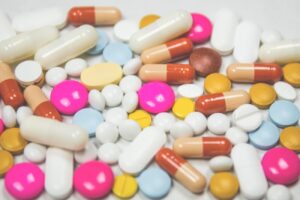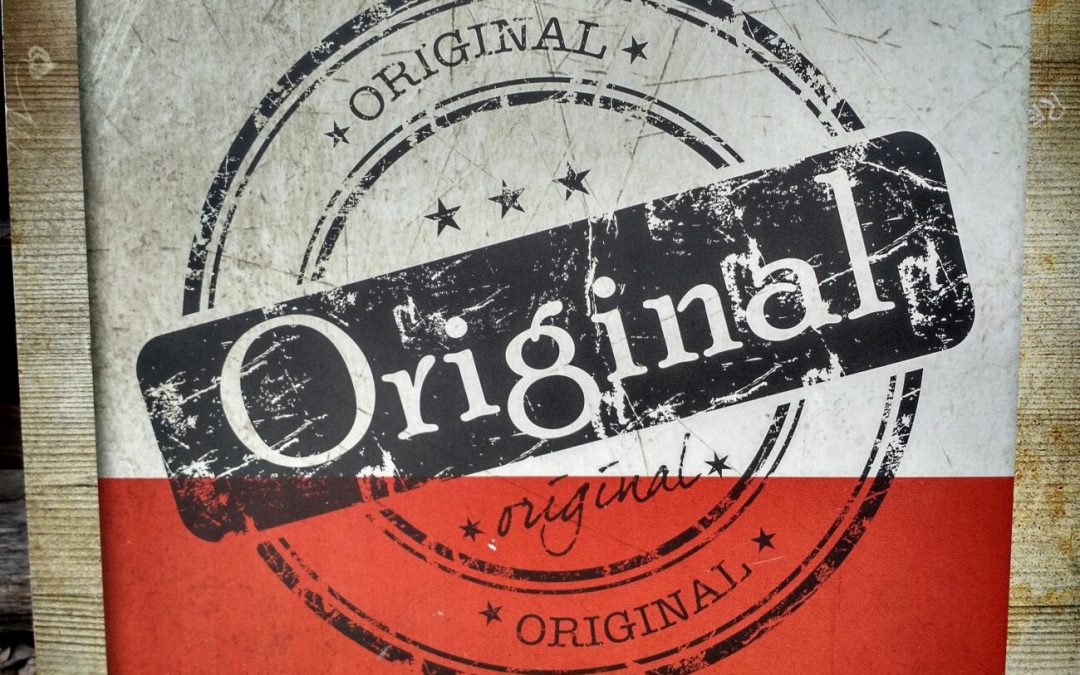Never Trust A Label
By Rosanne Lindsay
Food First
Taking supplements can be a risk. As an alternative to synthetic medications (always a risk), many supplements are not what they claim to be. While taking fat-soluble vitamins, in excess, can lead to toxicity (vitamin A, D, E, K), others (inorganic calcium) can lead to nutrient imbalances or bone spurs, while others can act antagonistically (zinc, copper, iron).
Nutrients are best absorbed through foods. Food first, then supplementation.
 It is difficult to disagree with supplementation when most ‘food’ elicits adverse reactions in the body. Some chemicals are listed as “the dirty dozen” to alert consumers. Unfortunately, a legal loophole allows manufacturers to classify food ingredients as “generally recognized as safe.” What about whole foods like fish? The mislabeling of seafood should also be considered.
It is difficult to disagree with supplementation when most ‘food’ elicits adverse reactions in the body. Some chemicals are listed as “the dirty dozen” to alert consumers. Unfortunately, a legal loophole allows manufacturers to classify food ingredients as “generally recognized as safe.” What about whole foods like fish? The mislabeling of seafood should also be considered.
What about mRNA vaccinated meat? According to Dr. Lew Strickland, of Utah’s Department of Animal Science, “producers are not required to vaccinate their livestock period, much less with an mRNA vaccine.” So it behooves meat eaters to do their research by speaking with the local farmer to find out what exactly they are buying to eat.
Mineral Deficiencies
Today, everyone is sub-clinically magnesium deficient. If people are magnesium deficient, they are likely also iodine deficient. With 80+ minerals required by the body, let’s just call it chronic mineral deficiency.
While sea salt is an obvious source of natural minerals, salt has been demonized by the American Heart Association. There is adulterated salt (bad), and real salt (good). For those looking for a real salt option, it all depends on the brand. Many contain known toxins of lead and arsenic (if the analysis is true). For the benefits of real salt, read this. As always, check with your health practitioner for your own needs.
There is a high prevalence of chronic disease as most people have been nutrient deficient most of their lives.
It is wise to gather information to know why it may be important to do something different. Not only are foods today laden with toxic chemicals and metals from soil and air pollution (unless you grow your own; in a green house), but how can anyone trust a label? For label basics, read What’s In A Label (2019).
Dietary Supplement Health and Education Act of 1994 (an amendment to the Federal Food, Drug, and Cosmetic Act of 1938), was supposed to regulate supplement labeling. However, today, to avoid the pitfalls of inaccurate label ingredients or misinformation, one would have to double-check all label information against product specifications and ensure it adheres to relevant regulations. Better to tour the facility where supplements are made, and talk to the staff.
Who has that kind of time?
Mislabeling
 A 2022 study published in JAMA Network Open found that 17 out of 30 immune supplement products sold on Amazon had inaccurate labels. More specifically, 13 of these 17 were missing between one and six active labeled ingredients.
A 2022 study published in JAMA Network Open found that 17 out of 30 immune supplement products sold on Amazon had inaccurate labels. More specifically, 13 of these 17 were missing between one and six active labeled ingredients.
A 2023 labeling analysis of 199 commercially sold multivitamins on Amazon published in Nutrients found that the majority contained vitamin D3 levels that were either too low or too high, while no supplement contained vitamin D2 (contrary to their claims).
Contamination
A 2012 study published in PLOS ONE found that 5% of 121 supplements contained arsenic amounts that surpassed the safe daily consumption limit. Additionally, 2% had excess lead, cadmium, and aluminum; and 1% had too much mercury. Heavy metal poisoning can cause irreversible symptoms like brain damage, plus kidney and liver failure.
A 2018 quality improvement study published in JAMA Network Open found that although the FDA had identified 746 supplements adulterated with unapproved, active pharmaceuticals (e.g., sibutramine, which increases the risk of cardiac arrest even in individuals without pre-existing cardiovascular disease) between 2007 and 2016, the majority of them remained available for purchase at the time of the study.
Magnesium stearate (listed on the label) is an additive found in the coating of capsules and medications. This fine white powder is also added to foods and cosmetics. As a “flow agent,” it prevents individual ingredients in a capsule from sticking together. Adverse effects include: poor nutrient absorption, abnormal bowel function, biofilm buildup, and a weakened immune system.
Make Your Own Supplements
Making your own encapsulated supplements means that you are not being overcharged by supplement companies who outright lie in their advertising. It couldn’t be easier to make your own.
- buy a capsule maker (many under $50).
- buy ingredients vetted as clean, pure, whole, organic
- make capsules
Simple Rules
Being healthy today requires participation in your health. Know what your body tolerates, and what it does not. Do not listen to the “experts.”
Know that minerals displace toxins. The same 80+ minerals of the sea are those required by the blood. Do your own research. Source foods from local, non-GMO, organic, sources. Make your own supplements as capsules, tinctures, herbal teas, etc. Remember, your body. Your health.
Related Articles:
- What’s In A Label
- Pretending to be Alternative
- Taking the Public Out of “Public Health”
- Something in the Water
- The Modern Myth of Health
- Excess Vitamin D: Too Much of a Good Thing
By Rosanne Lindsay, Traditional Naturopath|July 2nd, 2025|Categories: blog, July 2025|









